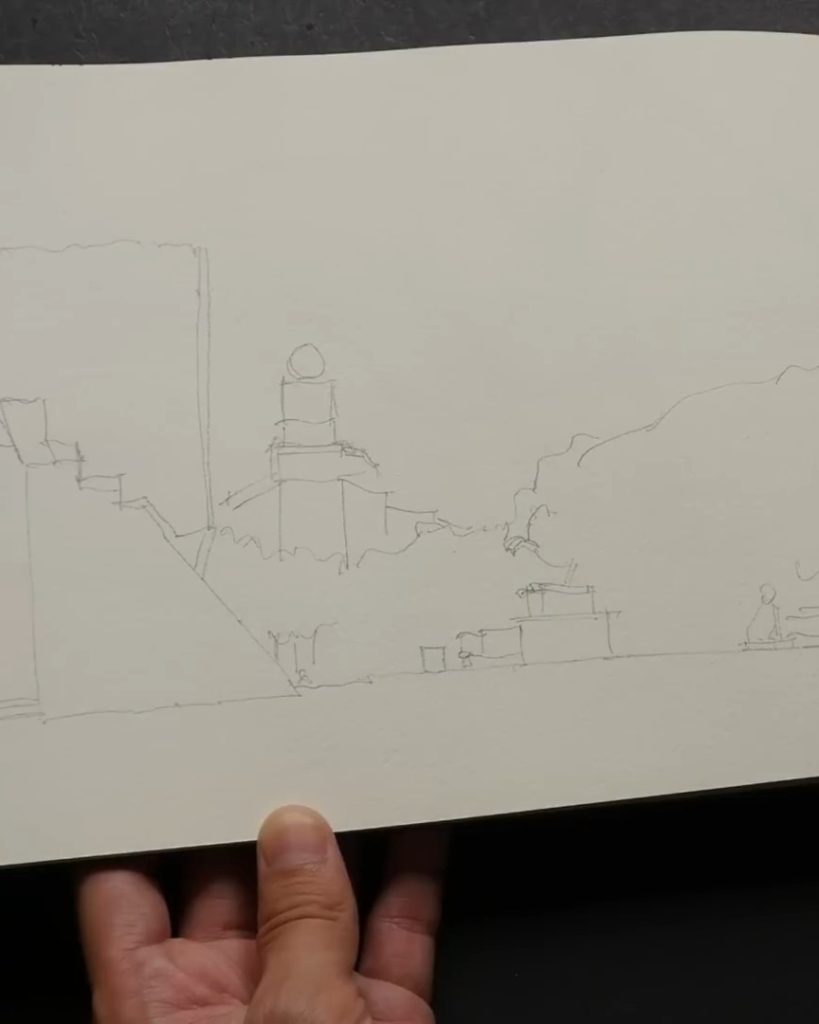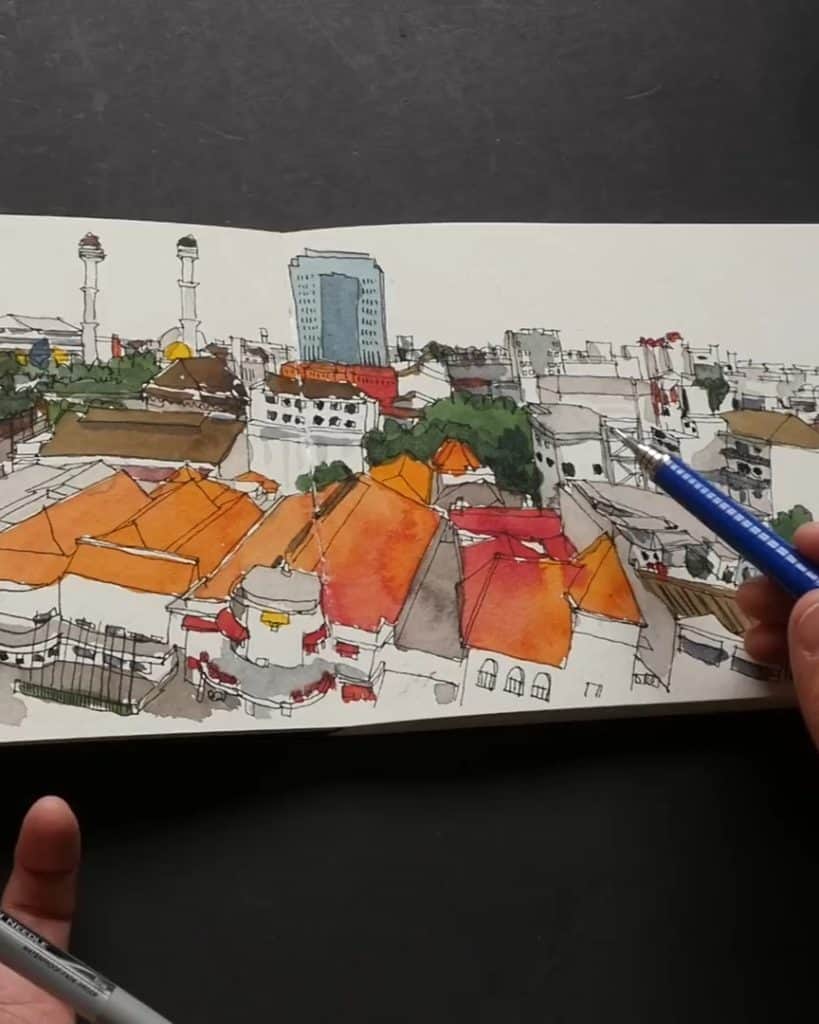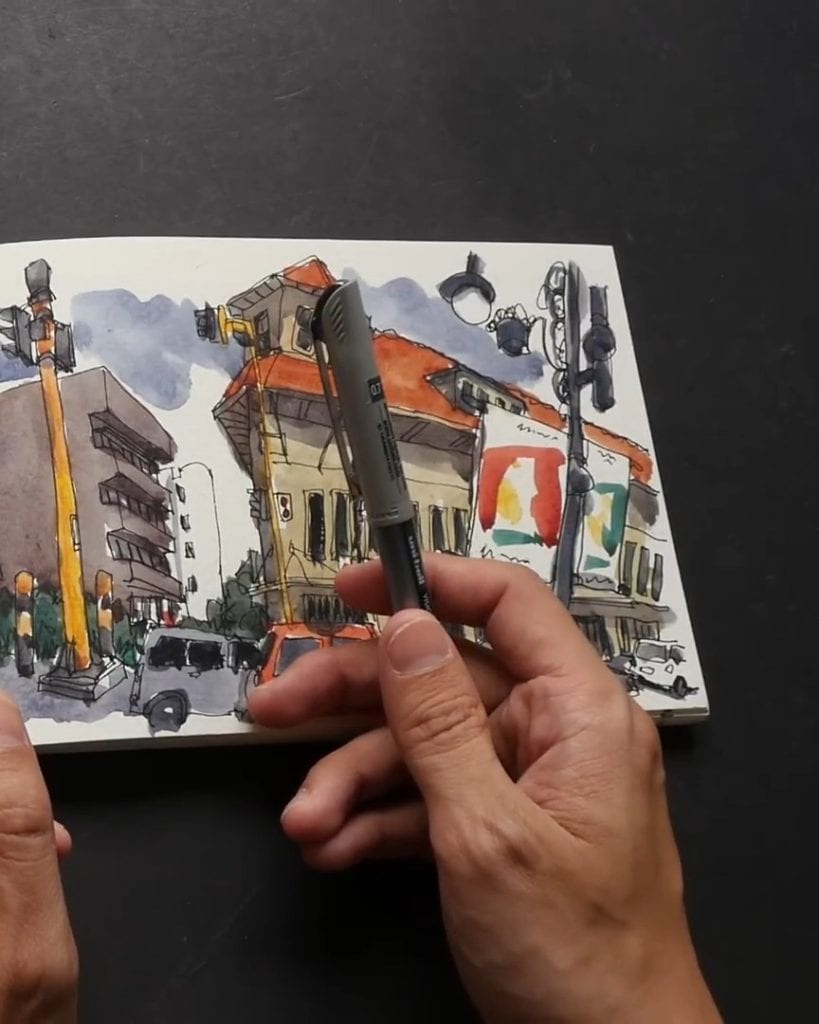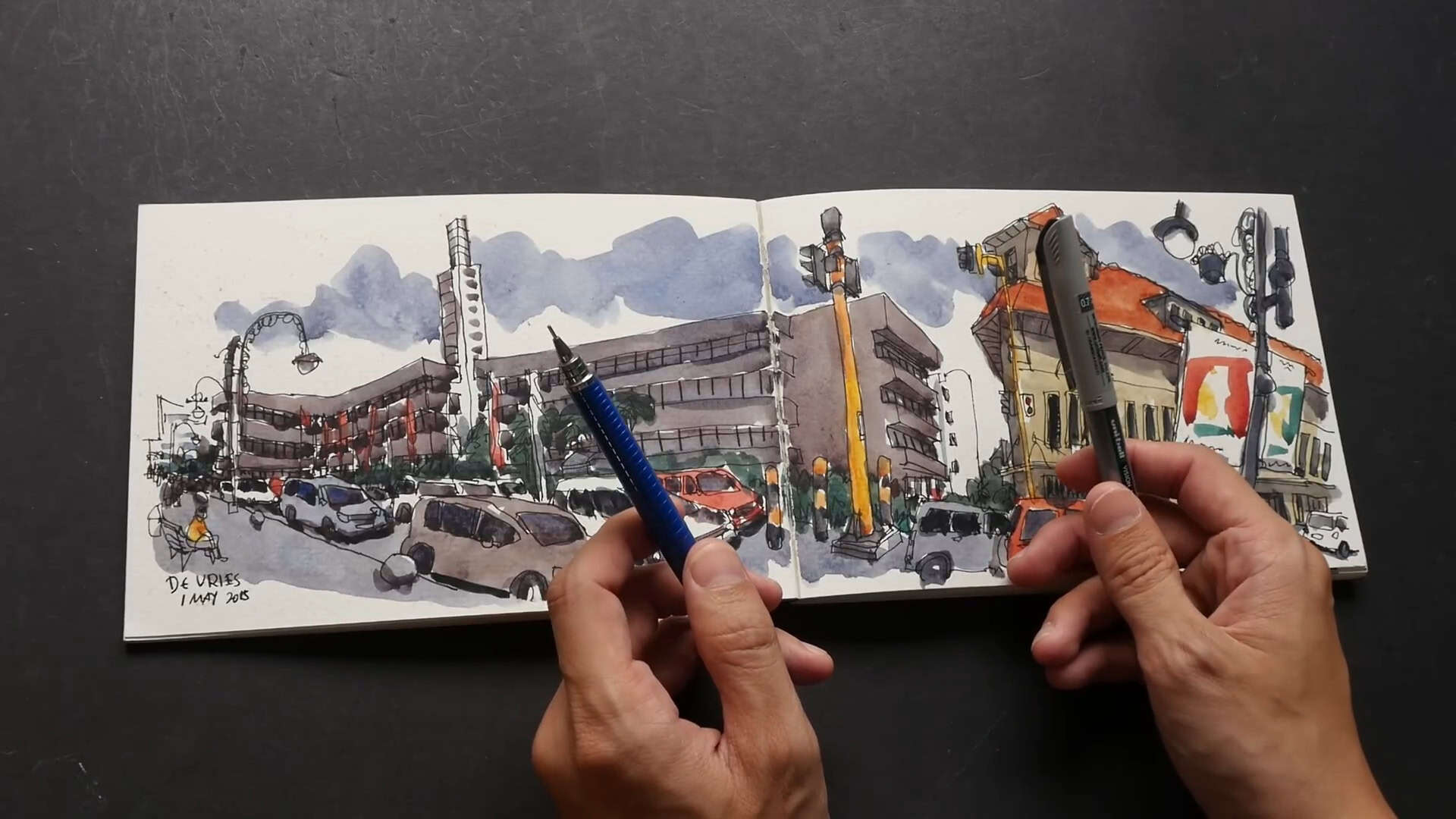Should you start with a pencil or go straight in with ink when sketching? I get asked this all the time.
The answer isn’t as simple as one or the other—it depends on the scene, your confidence, and how much time you have.
Let me share my experience and show you when I choose pencil first and when I skip straight to ink.
Contents
Using Pencil First: When and Why
There are times when I always reach for a pencil before inking. The main reason? Accuracy.
Let me explain when and why I use a pencil first.
Sketching Complex Scenes

When a scene is filled with details, a pencil helps me map everything out.
For example, when I sketched a cathedral in Barcelona, I needed to block out the overall shapes before adding finer details. There were buildings on the left and right, each with different protruding parts. Using a pencil helped me keep everything in proportion.
It’s not that I can’t achieve accuracy with a pen—I can. But it takes a lot more concentration.
A pencil lets me quickly draft the structure and erase mistakes if needed.
Ensuring Proportions and Composition

Perspective and proportion are crucial in urban sketching. A pencil helps me place key elements correctly before committing to ink.
I can lightly sketch in guidelines and ensure everything fits before refining the details.
Going Straight with Pen: When and Why
While a pencil is great for accuracy, there are times when I prefer to go straight in with ink. The biggest reason? Speed.
Here’s when I skip the pencil stage.
Sketching Simple Structures

For simpler buildings, I often start directly with pens. Take a single building, for example. The most important thing is to capture its overall shape first.
Once I get that down, I can add the smaller details without needing a pencil.
Sometimes, I might use a quick pencil guide for tricky elements—like making sure the curve of a roof is accurate—but in most cases, I dive straight in with ink.
Saving Time in the Sketching Process

Time is a significant factor in deciding whether to use a pencil. If I draft a double-page spread in pencil first, it can take an hour.
Then, inking takes another hour. Adding watercolor takes even longer. To speed things up, I often go straight in with ink.
For example, when I sketched an aerial view of a town, I skipped the pencil to save time.
However, this meant I had to be extra careful with proportions.
Increased Confidence and Efficiency

When I first started sketching outdoors, I relied on the pencil first. But over time, I became more comfortable with pen sketching.
Practice improved my ability to measure and estimate proportions without a pencil guide.
If I need accuracy, I still use a pencil—but if I’m confident in my measurements, I skip it.
Key Considerations When Using Ink and Pencil
Whether you choose pencil or pen first, there are a few essential things to keep in mind. Here are some key factors to consider.
Drying Time of Ink

If you use a pencil first, you’ll need to erase it after inking. But be careful—if the ink isn’t dry, it can smudge badly. I’ve had this happen before, especially with fountain pens.
Some inks dry slowly, while others, like Copic Multiliners, dry quickly.
Knowing your tools can help you avoid smudging your sketch.
Adapting to Different Sketching Scenarios

There’s no fixed rule for whether to use a pencil or ink first. It depends on the complexity of the scene, your comfort level, and how much time you have.
Over time, you’ll develop your own preferences. I still use a pencil for complicated scenes, but for quicker sketches, I go straight in with ink.
The key is finding what works best for you.
Closing Words
So, should you start with a pencil or go straight to ink? It depends! If accuracy is your priority, a pencil helps. If you want speed and confidence, ink is the way to go.
The more you practice, the better you’ll understand what works for you.
What’s your preference? Let me know in the comments—I’d love to hear how you approach sketching!

